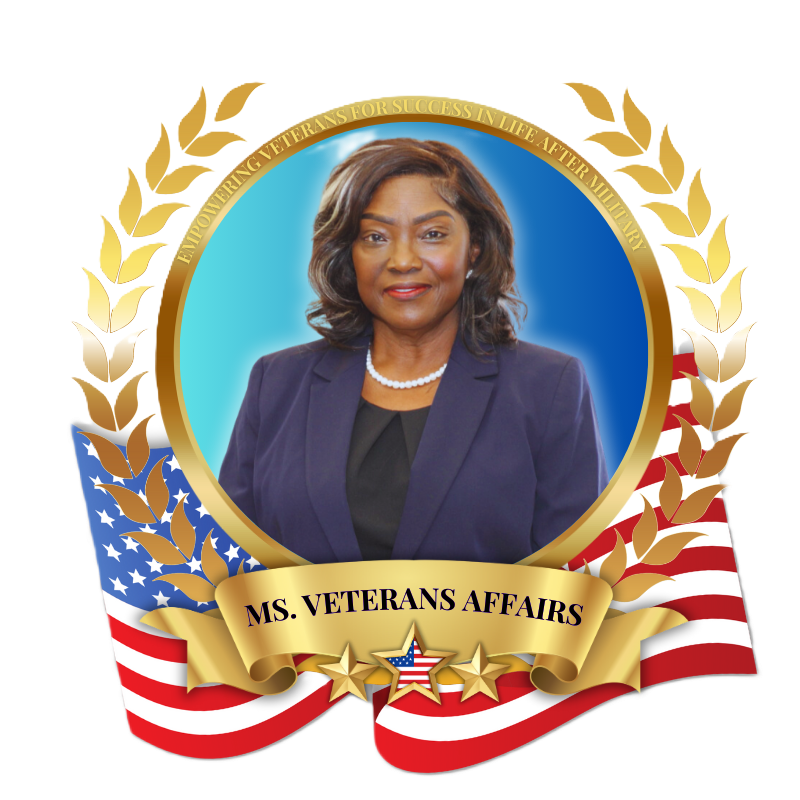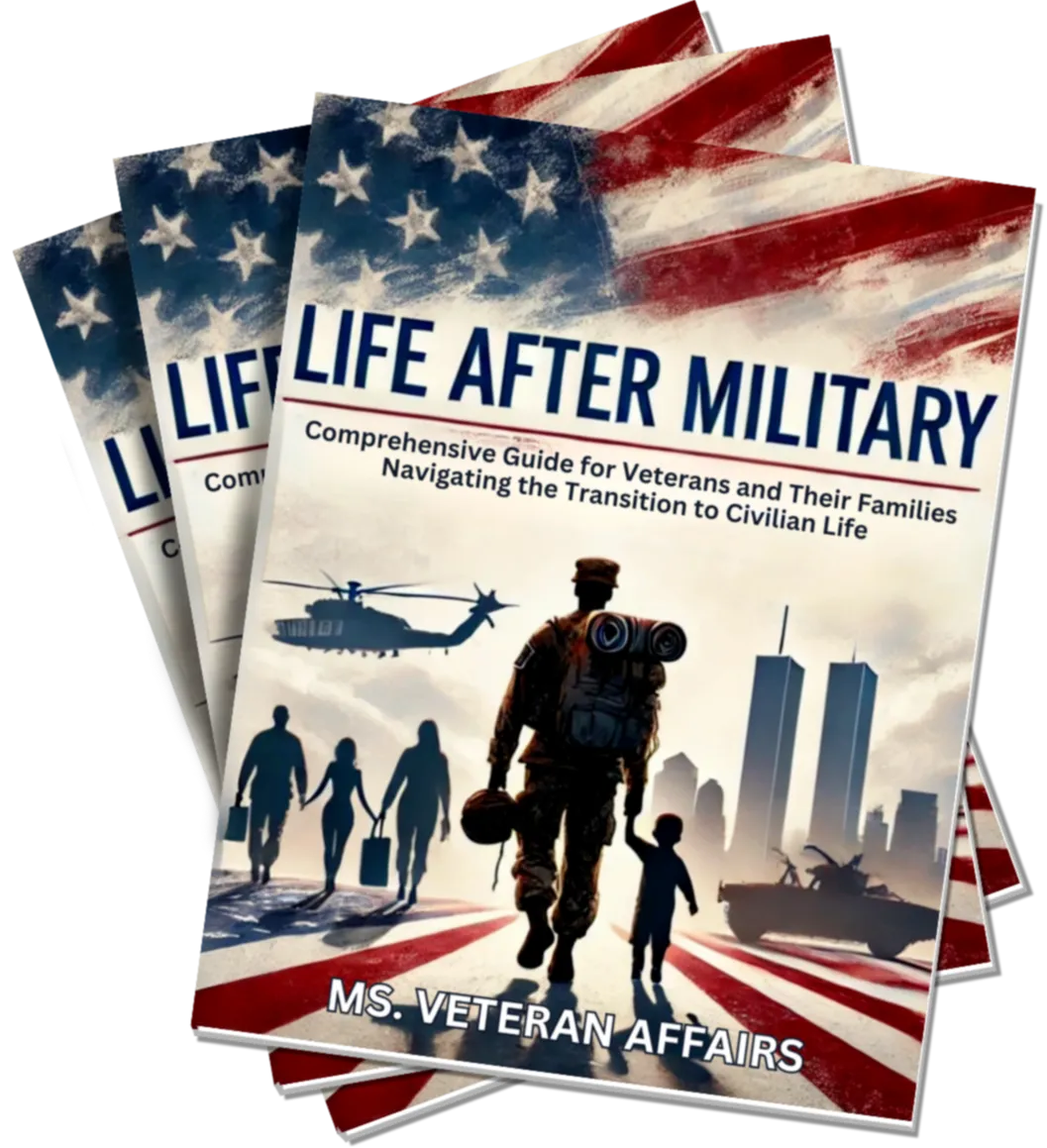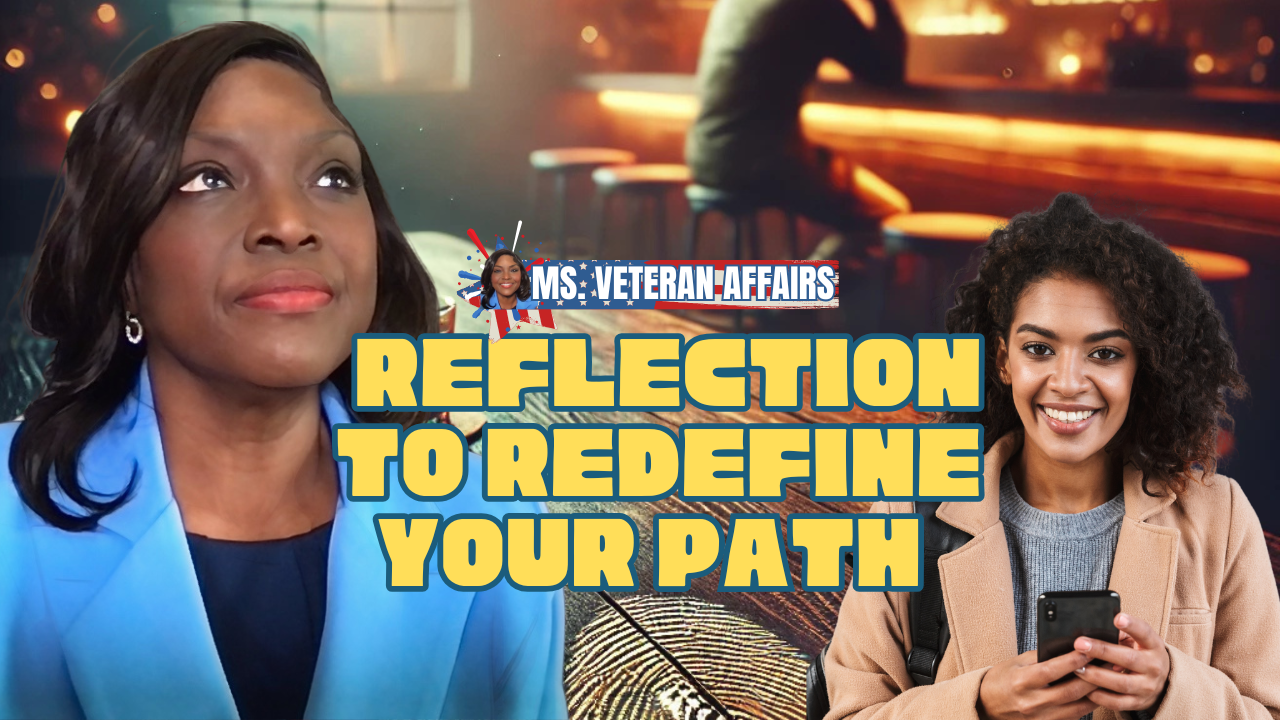Top Resources for Transitioning Veterans | Ms. Veteran Affairs
May 08, 2025
 Ms. Veteran Affairs’ Top 10 Resources for Transitioning Veterans
Ms. Veteran Affairs’ Top 10 Resources for Transitioning Veterans
“What would you do if the world suddenly turned upside down and you had no idea how to fix it?”
That was the question I found myself asking during the most challenging time in my life. My husband, an Air Force financial analyst, and I were doing the best we could—living the military life with its constant moves, long hours, and often unpredictable nature. But we didn’t have a home. We had each other, but that wasn’t enough to keep us from facing financial uncertainty.
No Home, No Stability
When my husband’s service came to an end, everything changed. He found himself struggling to adjust to civilian life, and we faced the cold reality that we had no permanent place to live. The pressure of not having our own home weighed heavily on me. But that wasn’t the only problem.
Living Apart to Make Ends Meet
My husband had to find work, which took him far away from me and our children. I had to stay behind with my parents, juggling their expectations while managing my own. It was a tough choice, but it was one I had to make in order to give us the chance to stabilize our lives. The separation was hard, and it only added to the emotional strain we were both under.
When Illness Strikes
Just when I thought things were starting to come together, my husband’s health took a nosedive. What we didn’t expect was that navigating his illness would be even harder than managing our financial situation. The bureaucracy was relentless. Every day was filled with paperwork, meetings, and long waits. The system was designed to support veterans, but in reality, it felt like it was working against us.
No Time to Mourn
When my husband passed, I thought I would have time to mourn. But that was not the case. I had children to take care of, bills to manage, and a life that kept moving forward no matter how devastated I felt. I didn’t have the luxury of slowing down. I had to push through the pain, find a way to keep our family afloat, and rebuild our lives. Mourning, in the traditional sense, had to wait.
The Financial Struggle: A Turning Point
During this time, I realized that financial literacy was not just a luxury—it was essential for survival. After my husband's passing, I had to take full control of our financial future. I dove deep into understanding our finances—things I had never paid attention to before. I learned about VA benefits, budgeting, and the importance of emergency savings.
But more importantly, I learned that financial security wasn’t just about having a paycheck. It was about making smart choices, setting goals, and building a foundation of support. It was about navigating the financial complexities that came with being a military spouse and, eventually, a widow.
Ms. Veteran Affairs’ Top 10 Resources for Transitioning Veterans
Now that I’m able to look back, I want to share what I’ve learned through the most difficult chapters of my life. Whether you’re transitioning out of the military, dealing with the loss of a loved one, or just trying to find your footing in civilian life, these are the resources I wish I’d known from the start:
1. VA Benefits Website (www.va.gov)
The go-to place for all things related to veterans’ benefits. Whether it’s healthcare, education, or financial support, this site can guide you through the process of applying for benefits and provide vital updates.
Practical Tip: Spend some time exploring the different benefit categories and find out what you're eligible for. Be sure to create an online account to track the status of your claims.
2. Military OneSource (www.militaryonesource.mil)
This website offers free resources for military families, including counseling, financial management advice, and relocation assistance. It's especially useful for the transition to civilian life.
Practical Tip: If you’re feeling overwhelmed, reach out for one-on-one counseling through Military OneSource. They can help you develop a customized plan for your family.
3. Veterans Employment Center (www.ebenefits.va.gov)
This platform helps veterans transition into civilian careers by connecting them with employers who actively seek to hire veterans. It’s an excellent resource for resume-building and job search support.
Practical Tip: Take advantage of the resume-building tool and career resources. It’s also worth uploading your resume to get noticed by employers looking to hire veterans.
4. The American Legion (www.legion.org)
The American Legion is a non-profit organization that offers support to veterans in multiple areas: health, education, employment, and overall wellbeing. They provide legal help and financial planning assistance as well.
Practical Tip: Join your local American Legion post to connect with other veterans and learn about the programs that can directly support your transition.
5. Hire Heroes USA (www.hireheroesusa.org)
This organization is dedicated to helping veterans find employment opportunities through resume assistance, interview preparation, and job placement.
Practical Tip: Utilize their free career coaching services to hone your job-search skills and get personalized advice tailored to your strengths.
6. Military Transition Assistance Program (TAP)
Offered by the Department of Defense, TAP is designed to provide transitioning service members with job-search assistance, financial planning, and other essential transition services.
Practical Tip: Be sure to attend a TAP seminar before leaving the military. It offers a comprehensive look at everything from job interviews to healthcare coverage.
7. National Veterans Foundation (www.nvf.org)
This foundation offers a broad range of services, including suicide prevention, legal advice, housing assistance, and financial literacy programs.
Practical Tip: If you're struggling emotionally, they offer a confidential helpline. It's important to remember that you don’t have to face these challenges alone.
8. US Department of Labor’s Veterans Employment and Training Service (www.dol.gov/vets)
A great resource for job placement, job training, and apprenticeships. They also assist with unemployment insurance and provide guidance on navigating your rights as a veteran.
Practical Tip: Check out their veterans' employment resources and connect with counselors to discuss your career options.
9. The Veterans Crisis Line (1-800-273-8255)
If you’re dealing with mental health challenges, the Veterans Crisis Line offers free, confidential support for veterans and their families.
Practical Tip: Don’t wait until it’s too late to ask for help. Reach out for support as soon as you begin to feel overwhelmed.
10. Financial Planning Resources for Veterans
There are various organizations, like the National Foundation for Credit Counseling (www.nfcc.org) and Military Saves (www.militarysaves.org), that offer free financial counseling specifically for veterans.
Practical Tip: Consider working with a financial counselor to develop a budget that works for you and create long-term savings and investment goals.
Rebuilding and Moving Forward
It took years to get to a place where I felt stable again. And while I’ll never forget the pain, the struggle, or the loss, I also realize that it made me who I am today—stronger, wiser, and more resilient than I ever thought possible.
If there’s one thing I’ve learned through all of this, it’s that the transition from military to civilian life isn’t just about finding a new job or a new home. It’s about rebuilding your identity, your stability, and your sense of purpose.
And that’s why I’m here—to help you navigate these challenges, to guide you through the process, and to remind you that you’re not alone.
Discussion Questions:
- What are the key challenges veterans face when transitioning to civilian life, and how can the resources provided help alleviate these challenges?
- How can veterans and their families take proactive steps to navigate the bureaucracy of veterans' benefits, and what are the most critical areas to focus on?
- What role does financial literacy play in a veteran’s successful transition, and how can veterans improve their financial skills during this period?
- What practical steps can veterans take to rebuild their sense of identity and stability after their military service ends?
- In what ways can community support and networking impact a veteran’s transition, and why is it essential for long-term success?
Join our community today!
Gain fresh insights every week—concise, impactful lessons designed to elevate your thinking, enhance self-awareness, and empower purposeful growth.
We hate SPAM. We will never sell your information, for any reason.












